Motherhood in the Netherlands can be quite different from what you might anticipate. Here are some things you can expect if you’re an international parent in the Netherlands.
I always knew that I wanted to be a mother, and at the age of 32, I was blessed with my son, Louie.
READ MORE | 7 ways raising a child in the Netherlands is different
Motherhood has certainly been a wild ride! Especially since I am raising my child in a country that I didn’t grow up in myself (I’m from Australia). However, since becoming a mummy, I can say that I am very happy to be raising my child in the Netherlands! 🇳🇱
With the help of some other international mothers living in the Netherlands and my own personal experience, I have put together a list of nine things to expect as an expat mother in the Netherlands.
1. Post-Maternity Care (Kraamzorg) in the Netherlands

What is this? It’s something international mothers who have given birth in the Netherlands are completely amazed by and grateful for. It’s an incredible service that shows the Netherlands is forward-thinking when supporting new parents.
After birth, a nurse comes to your house and offers you all the help and support you need (for up to seven days). As a first-time mother, I had no idea what I was doing, so having all the help around the house I needed was brilliant.
READ MORE | 8 things to know about giving birth in the Netherlands
I delivered my son through a c-section, so after my first major operation, I appreciated this help even more. My husband and I could enjoy the first days with our baby boy without worries, feeling nothing but kindness, support, and love. 💖
2. A strong sense of Dutch community

Many other international mothers I have spoken to said this was a big reason they were happy to be a mother in the Netherlands. They felt like it was a safe and friendly place to raise their children.
In the Netherlands, it’s not a problem to let your children ride their bikes in the neighbourhood as it feels safe, and it’s even common to see school-age children walk home from school alone.
READ MORE | How safe is the Netherlands? The safety guide to visiting and living in Holland
There is a big feeling of support from neighbours, which is important to me. My neighbourhood has a number of swings and many other things I can do with my son, which makes me glad I live here.
I may not be in my home country, but I know my son is surrounded by a good, strong, and safe community. 🧡
3. Boven woning and my big pram
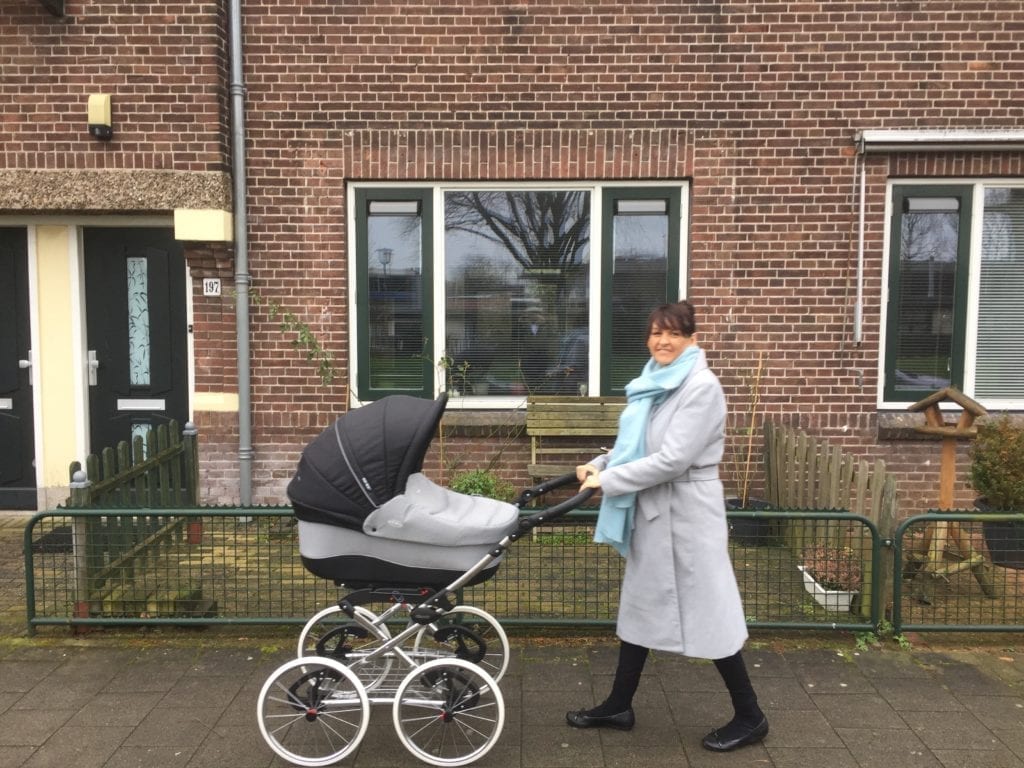
This is my silly rant, but it has proven to be a challenge for me, many times!
I live boven woning (living above ground floor) and when I open my front door, I am confronted with steep stairs. I would say these stairs are “typical” Dutch steps, you’ll come across them all the time in the Netherlands.
READ MORE | Having a baby in the Netherlands? All the Dutch vocab you’ll need
When I became pregnant, I read that choosing your pram is an important part of having a baby. Therefore, I decided to buy a pram that was beautiful, but quite large, so practical!
Trying to get my huge pram up and down these stairs while keeping my baby entertained has been quite challenging (yes, this is completely my fault! 😅 ).
4. Discovering local speeltuins (playgrounds)
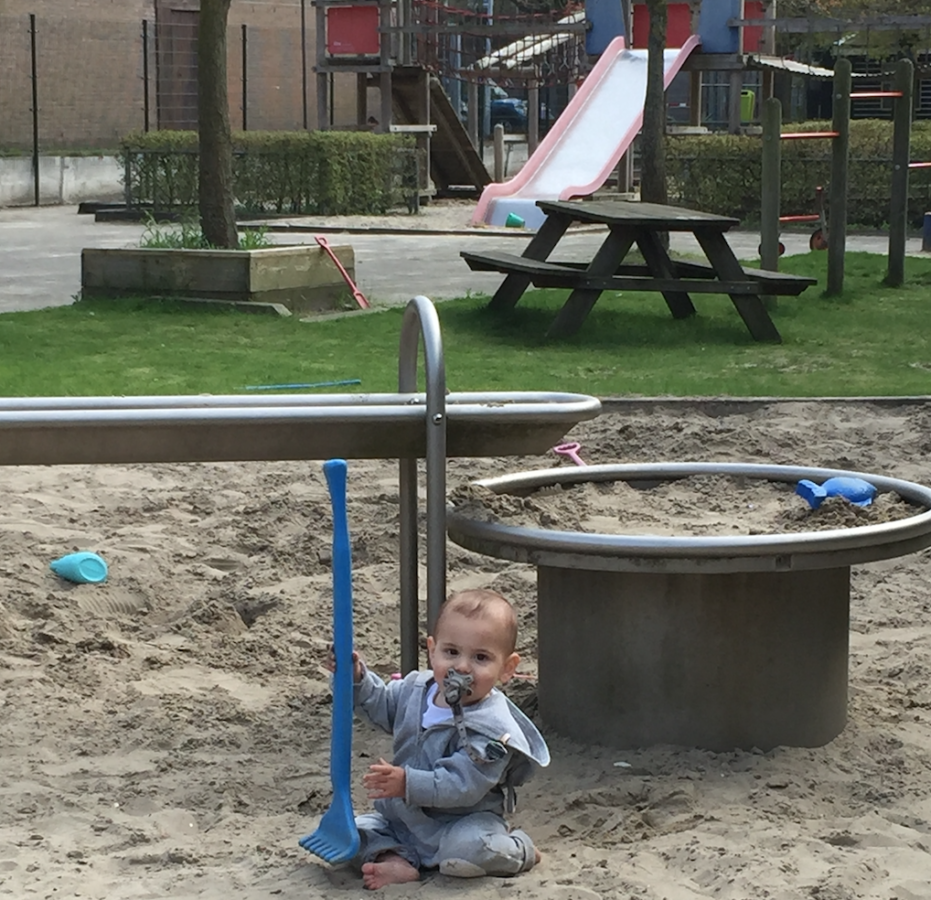
I didn’t even know speeltuins (playgrounds) existed in my neighbourhood before I had a baby. They are often hidden but amazing — now I regularly have playdates with other mums.
Walking through the small entryways dotted around can lead you to discover an amazing playground for kids (I’m lucky enough to have three speeltuins near my house, so check your area too)
On warm days, you may even find one with “water fun” (a shallow pool with a water sprinkler). Or what about finding ones with cute animals? Or even veggie gardens? There’s lots to choose from! 🐖
5. The Netherlands is baby-friendly
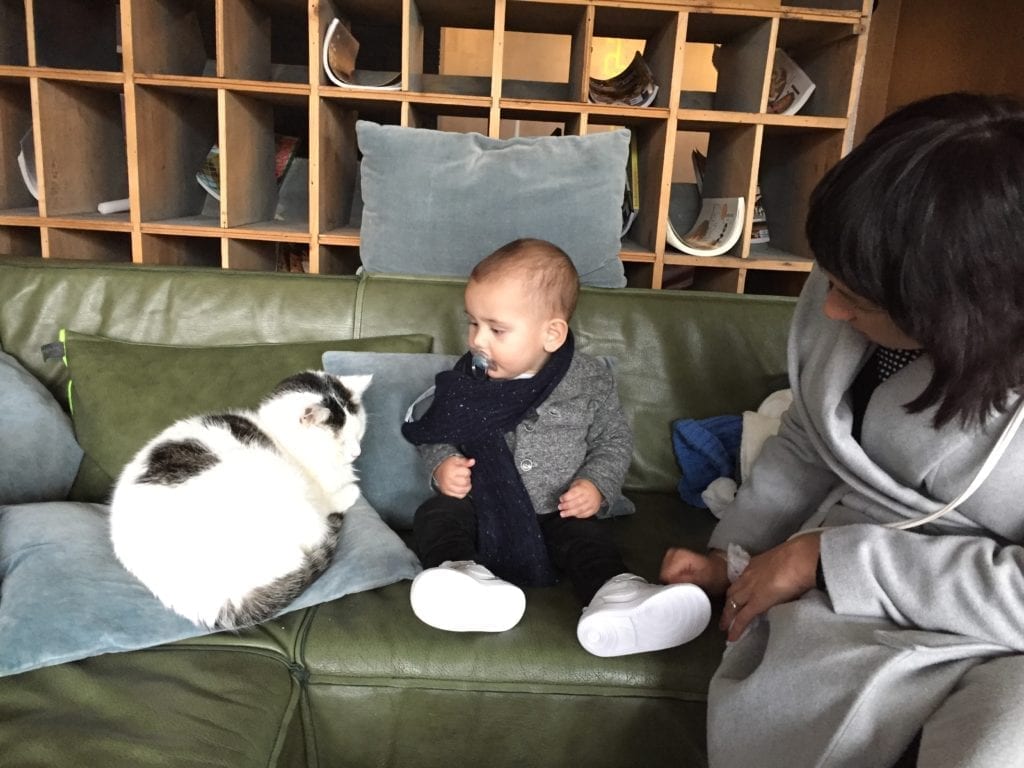
I truly feel like I can bring my baby wherever I go! That means most cafés, bars, and restaurants have no problem if you bring your baby along.
If you look around some terraces, you may notice the surrounding parade of prams, with so many babies (and sometimes furry friends) to adore.
I recently even attended a child-friendly festival, which was fantastic! Just because you have a baby, you shouldn’t feel like you have to stay at home.
6. Bilingualism
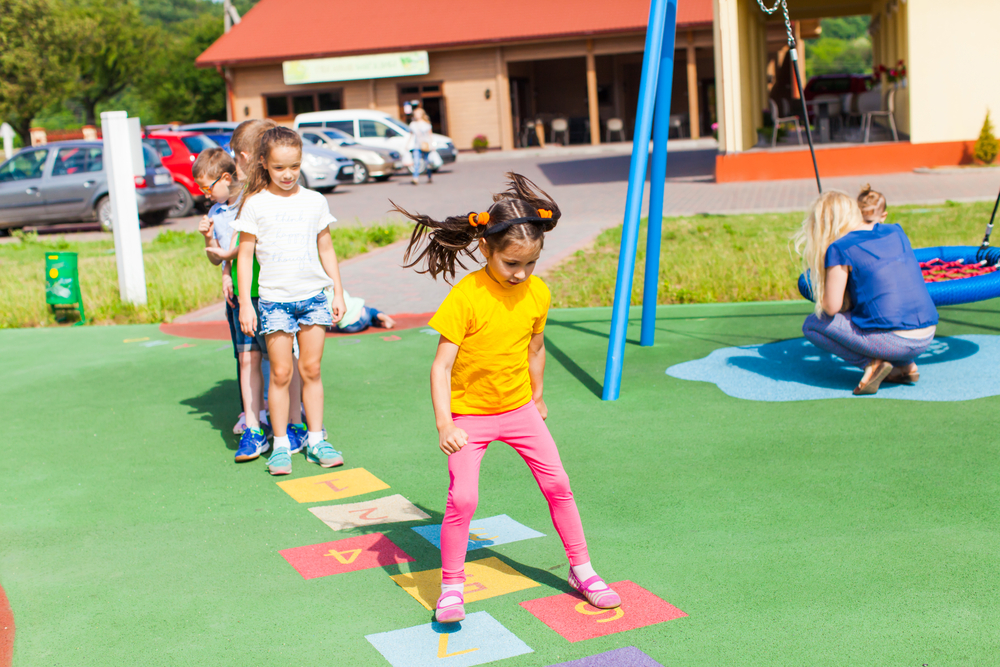
One of the questions I am asked frequently since having a baby in the Netherlands, is what language we speak at home.
Great question! As an Australian with a Dutch husband, I speak English to my son, and my husband speaks Dutch. My son also attends bilingual daycare.
READ MORE | Why are the Dutch so good at speaking English?
Even though the Dutch start learning English at a young age, I wanted my son to start learning Dutch and English from birth. 🇳🇱🇬🇧
Louie is registered in a bilingual school which he will start at age four. I love that my son has the advantage of learning both our (mother tongue) languages so early in life.
7. Upgrading your bike
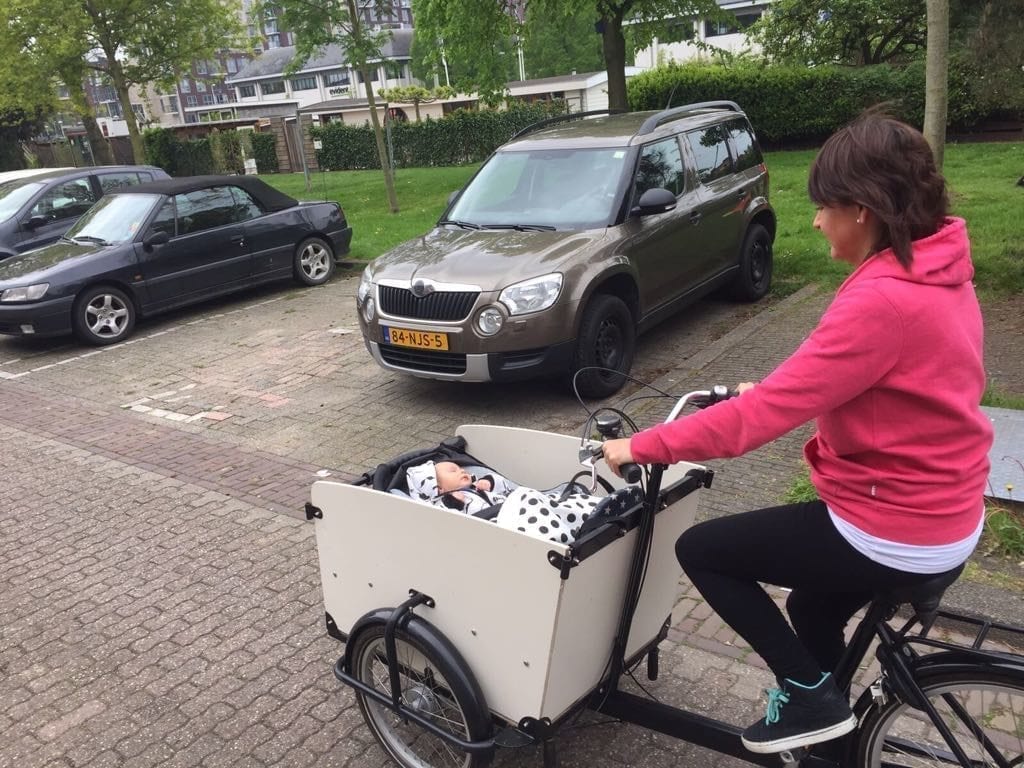
Pre-baby, I owned a classic granny bike (oma fiets). My situation means I don’t need car. And even now as a mother, my bikes (together with public transport), take us everywhere we need to go.
At eight months old, I purchased a mummy bike (mama fiets), equipped with a baby seat at the front. My son absolutely loves it; there’s nothing better than biking with him in the fresh air and hearing him chuckle.
READ MORE | Dutch Quirk #114: Throw their kids in giant cargo bike
After admiring strong Dutch mothers and their stylish bakfiets (cargo bikes) for so long, I finally got one of my own and am finessing the skill it takes to ride.
8. Flexibility with working in the Netherlands
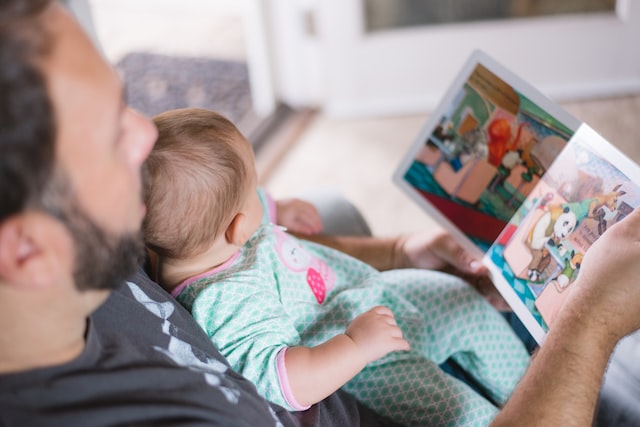
I am fortunate enough to work part-time, two days per week, and my husband works one day a week from home, a work-life balance widely accepted in the Netherlands.
The Dutch also have “papa dag” (daddy day), a fixed weekday off when fathers can look after, and spend precious time with, their children.
READ MORE | Parenthood in the Netherlands: advantages and challenges
This helps give flexibility and options for both parents when it comes to work and their child. Also useful are the government’s daycare subsidies. If you want to work, you can afford to send your child to daycare without breaking the bank.
Of course, all family situations are different, and some may argue they don’t have this flexibility. However, the Netherlands has many more options compared to other countries.
9. Missing my Mum

By far the most challenging thing for me being a mum in the Netherlands is missing my own mum. Of course, technology is amazing and allows us to maintain great content but her help and support is still from afar.
Those moments I need her the most are challenging — especially being a new mum.
So, there are some advantages and challenges I have experienced since becoming a mother in the Netherlands. Overall, I love being a mummy and I am glad I get to do it in the Netherlands.
If you are thinking about having children in Holland and you aren’t Dutch, keep calm. It’s a great place to experience motherhood! 🤰
Are there any other positives or negatives to being a parent in the Netherlands? Let us know in the comments! And don’t forget to join our Facebook group!





“This means if you want to work, you can afford to send your child to day care- without breaking the bank! “ by this comment of yours I would completely disagree. Kids day care are so expensive that it takes more than half of your salary.
Completely agree. If you want to be a full time mom is ridiculous how much you have to pay to day care :/
Thank you for sharing your wonderful story about being a mom in the Netherlands. When we visited Holland, we bicycled everywhere. We saw the moms bicycling with their children, one child in the back and one child in the front. It was refreshing to see mothers and fathers too out with their children out on bicycles on their daily shopping excursions and other outings.
Interesting to read your story. As an international student who came to the Netherlands as a mum, it was really challenging. First, the information was not out there that as a full-time student, I am qualified to take my child to the daycare and government would subsidise the cost. Most times, I had to come out of my lectures to go pick my 4 year old son who was attending the International school then and make him sit outside my class until I’m done with my classes. It was tough until I found some students who volunteer to take turns to pick him from school.
I however liked the fact that even babies can be fitted on the bikes and mum can be anywhere she needs to be in no time.
You forgot to mention that you are expected to go back to work and leave your baby when he is barely 12 weeks old